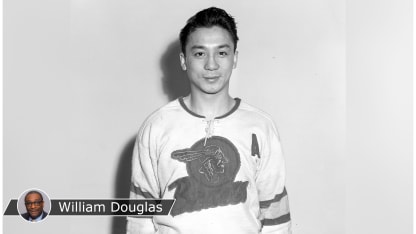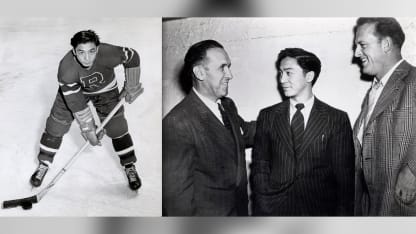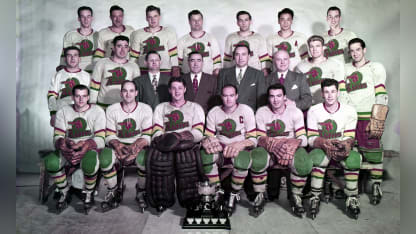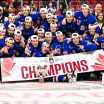Kwong was born in 1923, the 14th of 15 children. The son of a grocery store owner, he was drawn to hockey by Foster Hewitt's play-by-play calls on "Hockey Night in Canada" radio broadcasts.
He begged his parents for a pair of skates and eventually got a mail-order oversized pair of CCMs.
At 5-foot-6, Kwong developed into a speedy skater and shifty center. He played for the Trail Smoke Eaters of the Alberta-British Columbia Senior League in 1941-42 after a successful minor hockey career. He joined the Canadian army during World War II and mesmerized troops with his hockey skills.
Kwong also caught the attention of the Rangers, who invited him to their training camp in 1946. He was assigned to the New York Rovers, the Rangers' affiliate in the old Eastern Hockey League and the Quebec Senior Hockey League.
The Rovers played at Madison Square Garden, where Kwong quickly became a star attraction and fan favorite. Nicknamed "The China Clipper" and "King Kwong," he led the team in scoring in 1947-48.
Kwong's minor league performance that season, coupled with a rash of injuries on the Rangers, prompted a call-up to the parent club for the game at the Canadiens.
He sat through two periods before Rangers coach Frank Boucher put him in the game with the score tied 2-2.
"They got me out there and I did the best I could," Kwong said in a 2015 article in Legends, the Hockey Hall of Fame's program guide.
The Canadiens won 3-2. Kwong was one minute and done for his NHL career. He never asked why he didn't get a longer look.
"Oh, I was disappointed that I didn't play more. I just let it be," Kwong told the Color of Hockey in 2015. "I always thought the coach knew what he was doing. Maybe he had orders from the top brass. I don't know."




















